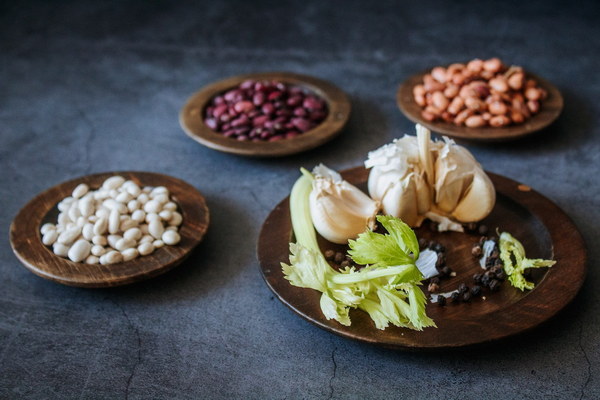Nurturing a Lambs Stomach A Comprehensive Guide to Raising a Healthy Lamb
In the world of agriculture and animal husbandry, the health of livestock is paramount. Among these animals, lambs, being the young offspring of sheep, require special care, particularly in maintaining their digestive health. A well-nourished stomach ensures that lambs grow up to be robust and productive. This article delves into the essential practices for nurturing a lamb's stomach, ensuring its overall well-being.
Understanding the Lamb's Digestive System
Before delving into the specifics of lamb stomach care, it's crucial to understand the unique digestive system of a lamb. Lambs are ruminants, which means they have a four-chambered stomach. This complex system allows them to digest a wide variety of plant material, including grasses, herbs, and legumes. However, it also means that they are prone to certain health issues if not properly managed.
1. Balanced Diet
The foundation of maintaining a healthy lamb stomach is a balanced diet. Here are some key points to consider:
- Grass and Hay: Fresh pasture or hay should be the primary source of fiber in a lamb's diet. This helps keep the stomach healthy and provides essential nutrients.
- Forage: Introduce young lambs to forage gradually to avoid digestive upset. Start with small amounts and increase as the lamb matures.
- Supplements: Depending on the lamb's age and the quality of available feed, supplements such as grain, vitamins, and minerals may be necessary to ensure proper nutrition.
- Avoid Feeding Too Fast: Rapid feeding can cause bloat, a serious condition that can be fatal. Encourage slow, steady eating by providing small meals throughout the day.
2. Clean Water
Access to clean water is just as important as the diet. Lambs need to drink plenty of water to maintain digestive health. Ensure that water sources are clean and free of contaminants.
3. Regular Health Checks
Regular health checks are vital for detecting and addressing any issues early on. Pay attention to the following:
- Manure: Observe the color, consistency, and frequency of manure. Abnormalities can indicate digestive problems.
- Appetite: Monitor the lamb's appetite. A decrease in appetite can be a sign of illness.
- Weight: Regular weigh-ins can help identify any sudden weight loss or gain, which may be indicative of health issues.
4. Preventing Parasites
Parasites can significantly impact a lamb's digestive health. Preventive measures include:
- Deworming: Regular deworming treatments are essential to prevent internal parasites.
- Pasture Management: Rotate pastures to prevent overgrazing and reduce the risk of parasites.
- Sanitation: Keep the lamb's living area clean and free of parasites.
5. Handling and Stress Management
Stress can have a negative impact on a lamb's stomach health. Minimize stress by:

- Gentle Handling: Handle lambs gently to avoid causing unnecessary stress.
- Consistency: Maintain a consistent routine to provide a sense of security.
- Social Interaction: Lambs need social interaction with other lambs to develop properly.
Conclusion
Nurturing a lamb's stomach is a multifaceted task that requires attention to diet, hydration, health checks, and stress management. By following these practices, livestock farmers can ensure that their lambs grow up to be healthy, robust, and productive. Remember, a well-cared-for stomach is the key to a lamb's overall well-being.









